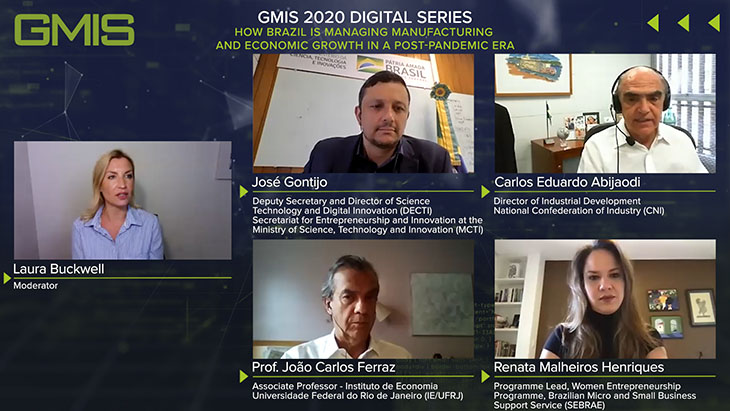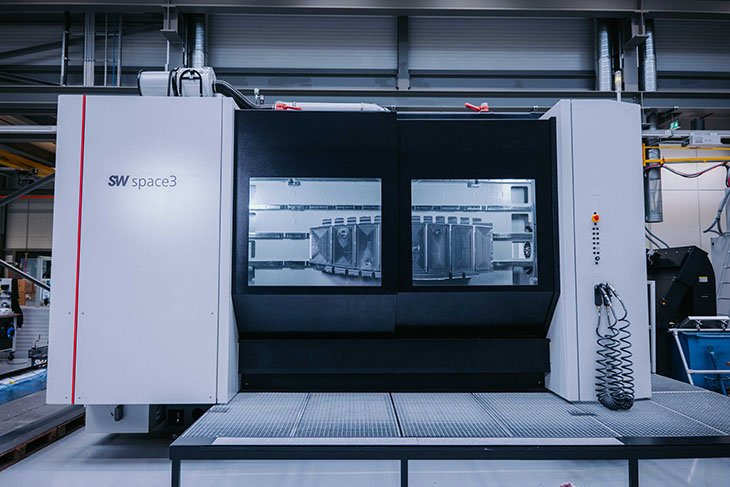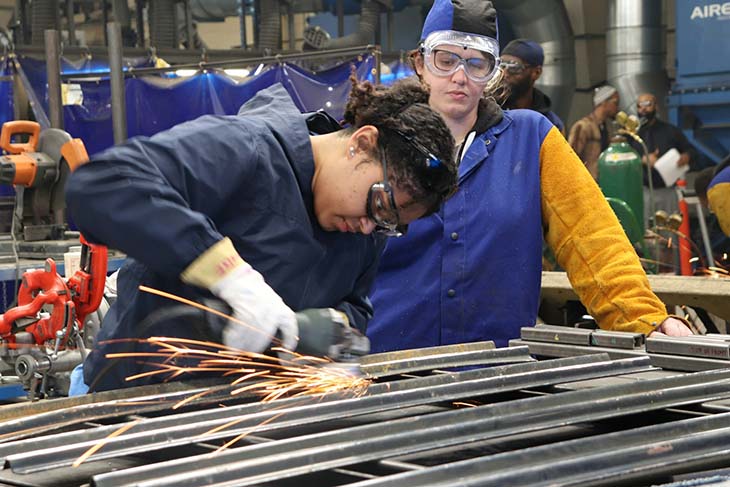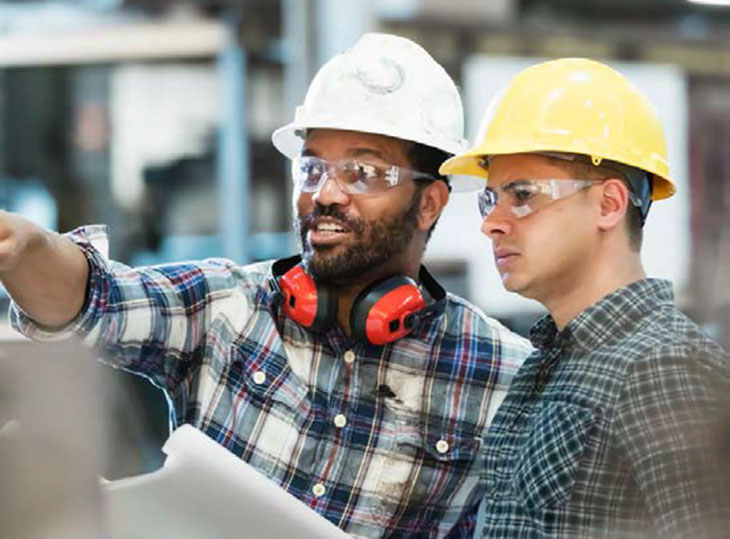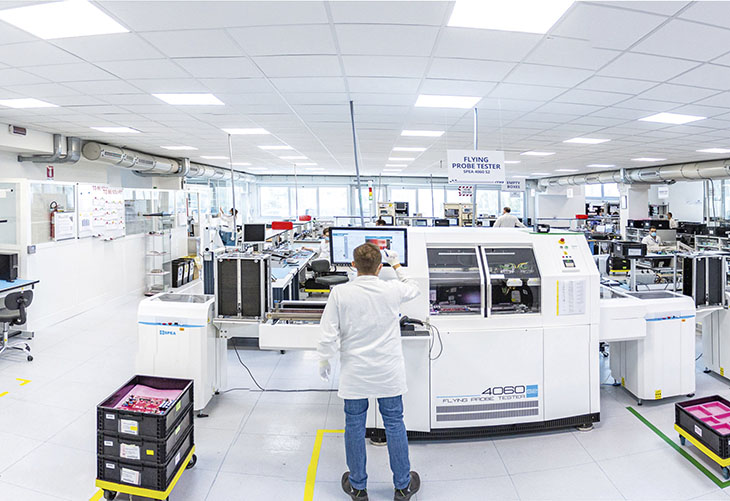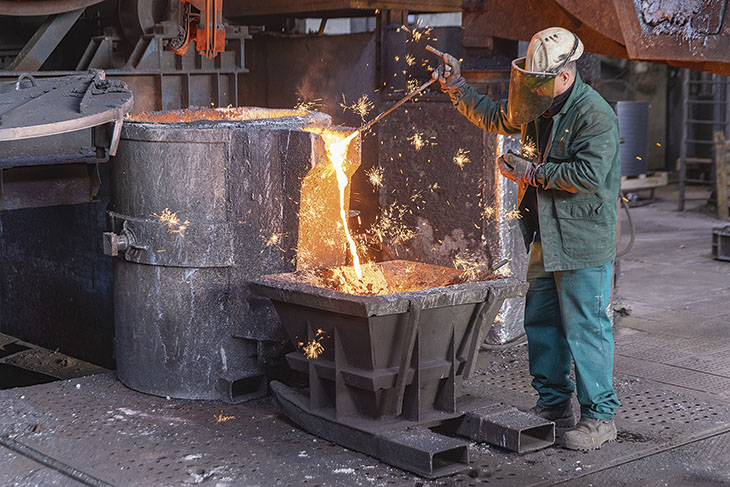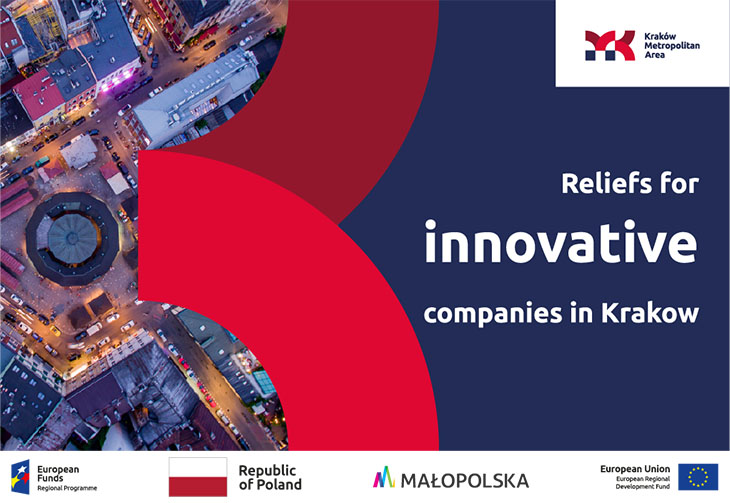- Experts at the Global Manufacturing and Industrialisation Summit’s #GMIS2020 Digital Series discuss the impact the pandemic has had on Brazilian industrial sector and the importance of embracing Industry 4.0 as a route to recovery
- 99% of businesses in Brazil are SMEs competing on a global scale and contributing to economic growth in Brazil
- 50% of Brazil’s labour force is employed by micro businesses which will play a significant role in economic recovery
- Leading experts from Brazil concerned about cost of digital integration as a significant barrier in achieving its potential and recovering from the global crisis
Hannover, Germany – October 13, 2020: Digital transformation is key to restoring the Brazilian economy from the impact of the pandemic as it enables large organisations as well as micro and small and medium-sized (SMEs) businesses to integrate locally and globally. However, without public policy and education reform, it will be difficult for SMEs, who account for the majority of businesses in Brazil and play an essential role in economic growth and social inclusion, to integrate digitally.
These are some of the key findings from the virtual panel session from the Global Manufacturing and Industrialisation Summit’s #GMIS2020 Digital Series. Experts from Brazil discussed how the pandemic has affected the country’s manufacturing sector and has instilled an immediate sense of urgency across companies of all sizes to embrace Industry 4.0 technologies to drive digital transformation.
In June 2020, Latin America became the epicentre of the global COVID-19 pandemic. Beyond the social and health implications, the economic impacts in the region were tangible - from plummeting commodity prices to a significant drop in demand for tourism and transport services, and a major stall in global industrial activity due to the disruption of global value chains.
Prof. João Carlos Ferraz, Associate Professor, Instituto de Economia, Universidade Federal do Rio de Janeiro (IE/UFRJ) said that like all other countries, the pandemic had a huge impact on Brazil’s economy. Although the manufacturing sector was not subject to lockdown restrictions in the way that other industries were, the demand for many products that are made in these facilities fell which eventually led to the suspension of production in many factories. However, since the lockdown measures were eased in May, Brazil has seen a quick recovery across several industries, with many production facilities returning to pre-pandemic levels. “Whilst there are signs of recovery, we still have many challenges ahead, and many companies and also families are still in a fragile position. Sustainable growth depends on Brazil’s ability to maintain the current measures but also adapt to the business environment and bolster competitiveness in order to emerge in a stronger position than we were in before – economically.”
“Current estimates show unemployment is very high in Brazil, around 13%, so we need measures that help get people back into jobs. To do this, we need to return to informal working, turning away from the formal structures that have created barriers to entry for many.
“Micro businesses have a strategic role to play in the recovery from the pandemic. Around 50% of Brazil’s labour forces are employed with micro businesses, and therefore this sector has significant potential in helping the economy recover. However, the government must also help them and to do this, we need to help support access to finance for investment.”
However, Jose Gontijo, Deputy Secretary and Director of Science, Technology and Digital Innovation - DECTI, at the Secretariat for Entrepreneurship and Innovation at the Ministry of Science, Technology and Innovation (MCTI) said that to support businesses through recovery, major policy reformation is needed. “Doing business in Brazil is very complex, but if we want to build a sustainable recovery for our country and the businesses here, we need to simplify the difficulty in doing business. For example, at the moment, around 10% of the revenue of most SMEs goes towards navigating legislative complexity. This needs to change.”
Gonjito also discussed the potential of digital technologies, driven by the Fourth Industrial Revolution (4IR), in achieving economic restoration and building future resilience. “In Brazil, we have established a national digital strategy and a national Internet of Things strategy; however, the success of these strategies depends on having workers with the right skills to operate the technology. This takes time. We need to prepare our youth now, for the jobs of tomorrow but to do this, we need to reform our education system and pivot to digital skills. The best way to tackle it is through collaboration – with government, academia, industry and society all working together to drive Brazil’s competitiveness.”
Carlos Eduardo Abijaodi, Director of Industrial Development, National Confederation of Industry (CNI) explained that although it is too soon to truly understand the impact on the crisis to Brazilian value chains, there is now evidence of emerging opportunities for investment in digital technology that could maximise the potential for Brazil’s industrial sector. “The world is different now; we have to embrace the technology we have and implement digitisation as a critical part of the recovery process. It has to be something that is present in every company. Industry 4.0 is a crucial tool for improving productivity in Brazil and also our participation in global value chains. But, the issue is ensuring the digital integration of all organisations in Brazil. The digital divide between companies who can afford to put in place new infrastructure, and those who cannot – is significant and requires consistent support and structural change to close the gap.”
Renata Malheiros Henriques, Programme Lead, Women Entrepreneurship Programme, Brazilian Micro and Small Business Support Service (SEBRAE) agreed but said that equality and diversity are also key pillars of building the businesses of tomorrow. “99% of businesses in Brazil are SMEs and a huge contribution to the economic growth in Brazil and competitiveness on a global and national scale, therefore nurturing this segment is of paramount importance. Last year, 50% of new companies were opened by women – so exactly half, and yet 43% of those told us they opened due to necessity – because it was the only way they could earn money to support their family.
“The COVID-19 crisis has shone a light on the challenges women in the industry face. For example, women typically reside in sectors that are less innovative and with less aggregated value and the decision to enter these sectors is one we believe is cultivated from birth, so there is an issue with the long term public policy that we need to fix. We need to be aware of how our culture impacts our economic structures and the importance of tailoring education and skills training to tackle systemic challenges in order to help both men and women succeed equally. We need to keep our eyes on the longer term, but also make sure public policy supports short term results to close the digital divide. Women must be present, and leading, in all sectors, not just a few.”
The panel, entitled ‘Latin America and the Caribbean manufacturing and economic growth in the post-COVID-19 era’ was moderated by journalist and news anchor, Laura Buckwell, and brought together leading experts from Brazil to discuss and share their experiences in building resilience against global shocks. In doing so, the panellists agreed that while the crisis affords an opportunity to promote innovation, firms and countries need to invest in the required technological and productive capabilities in order to build resilience into the bones of organisations and therefore the wider sector. The panellists outlined the need for governments in Latin America and beyond, to address investment in digital transformation and production capabilities that can contribute to the drive to strengthen social and economic resilience.
Gontijo concluded the discussion saying: “This has been a very difficult time for all of us, but it has shown what we can do when we work together. So, it is this we need to remember as we rebuild for the future.”
“The more we share experiences, such as through this GMIS digital series, the more inspired we will be by others and the greater chance the Brazilian economy – and indeed the global economy - has of recovering to a strong position.”
The virtual panel discussion was the latest in a new sequence of weekly sessions held by the #GMIS2020 Digital Series, following the Virtual Summit that was held on September 4-5, 2020. The session is available to watch on-demand at https://bit.ly/2YHVHyY.
Participants can watch the GMIS Digital Series by registering on the following link: https://bit.ly/3eYq75o. The programme agenda is available on the following link: https://bit.ly/2Al40r7.









